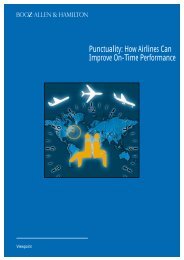The sentence
The sentence
The sentence
You also want an ePaper? Increase the reach of your titles
YUMPU automatically turns print PDFs into web optimized ePapers that Google loves.
E. Adverbs of degree<br />
<strong>The</strong> two meanings of ‘quite’<br />
1. Quite, fairly and rather are common adverbs of degree. <strong>The</strong>y can make the word they<br />
modify weaker or stronger and their effect depends on stress and intonation. If we say:<br />
<strong>The</strong> film is quite/good! and our voice ‘goes up’, this means ‘I enjoyed it on the whole’.<br />
<strong>The</strong> film is quite/good. and our voice ‘goes down’, this means ‘I didn’t really enjoy it’.<br />
We can put quite in front of ordinary adjectives (quite good), adverbs (quite slowly), and<br />
a few verbs (I quite enjoy). Regardless of stress, the meaning is ‘less than’.<br />
2. We can also use quite with ‘absolute’ adjectives (dead, empty and full), and with ‘strong’<br />
adjectives like amazing and wonderful. <strong>The</strong>n it means ‘completely’. <strong>The</strong> voice ‘goes up’.<br />
<strong>The</strong> man was quite dead! <strong>The</strong> bucket is quite full! <strong>The</strong> film was quite wonderful!<br />
‘Fairly’<br />
Fairly often goes with ‘ good’ adjectives and adverbs and adverbs (good, nice, well, etc.). It<br />
is generally ‘less complimentary’ then quite. We do not use ‘enough’ to mean quite or fairly.<br />
What’s Yoko’s English like? – It’s quite good, (‘complimentary’) Not *enough good*<br />
What’s Yoko’s English like? – It’s fairly good. (‘less complimentary’) Not *enough good*<br />
We can’t use fairly with some ‘absolute’ adjectives: Not *fairly wonderful*<br />
‘Rather’<br />
Rather is stronger than quite and fairly and suggests ‘inclined to be’.<br />
It often goes with ‘bad’ adjectives (bad, poor, awful, unpleasant, etc.).<br />
When it goes with ‘good’ adjectives (good, nice, tasty, etc.) it often means ‘surprisingly’:<br />
This ice-cream is rather good. (perhaps I didn’t expect it to be)<br />
‘Much’, ‘any’, ‘far’ and ‘a lot’ as adverbs of degree<br />
1. We can use much and far with comparatives and superlatives to say ‘to what degree’:<br />
Jane is much better today. London is far bigger than Edinburgh.<br />
This Indian cookery book is by far the best. London is much the biggest city in Britain.<br />
2. We can use a lot and any with comparatives: It’s a lot bigger. Is it any better?<br />
3. Not much and not any go with a few adjectives: This battery isn’t much good/any good.<br />
4. We can use not much and (not) a lot with verbs such as like and enjoy:<br />
I don’t much like fish. I don’t like fish (very) much. I (don’t) like fish a lot.<br />
5. We often use much and far with prefer and would rather:<br />
I much prefer tea to coffee. I’d for rather have tea then coffee.<br />
42




